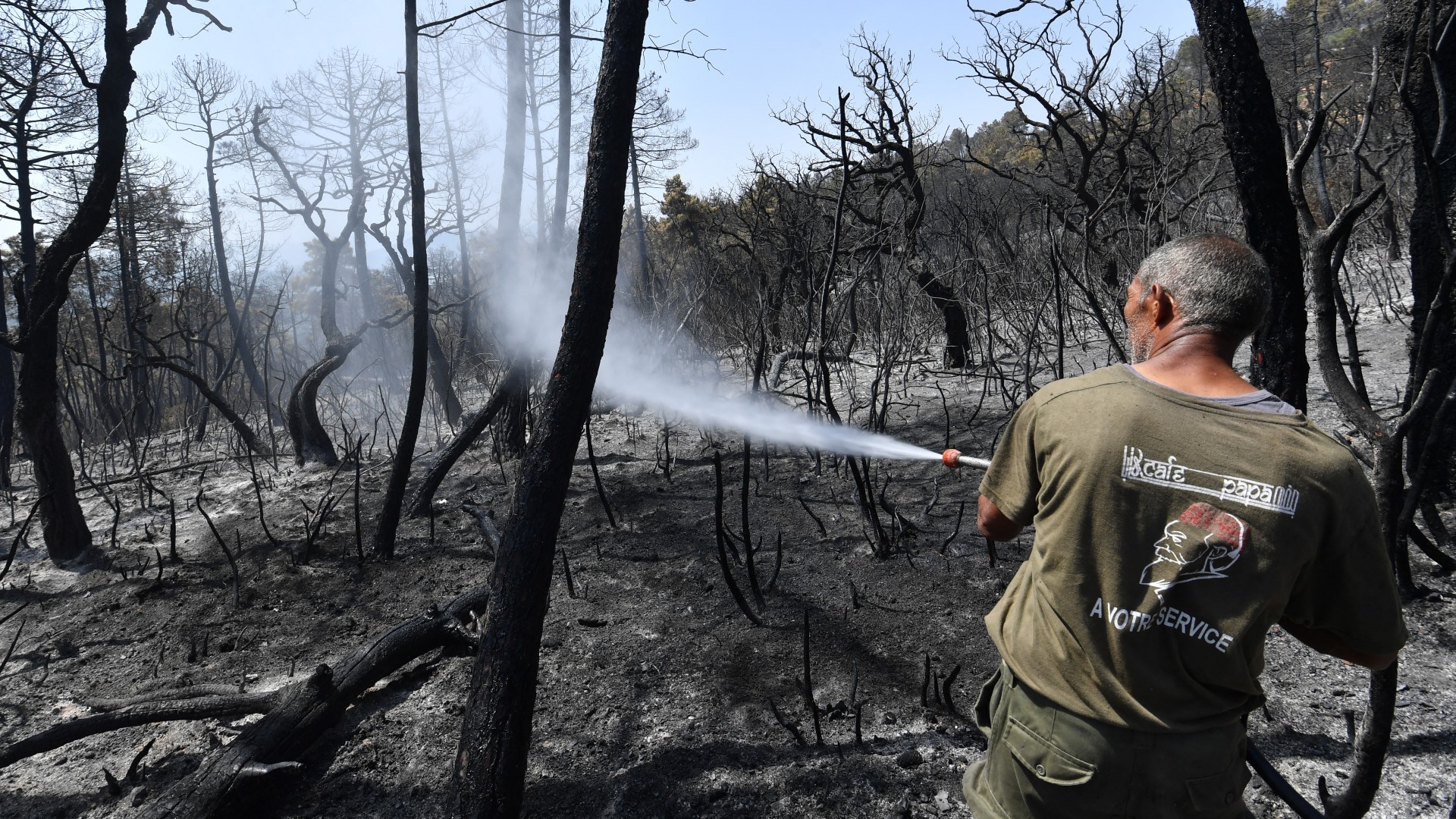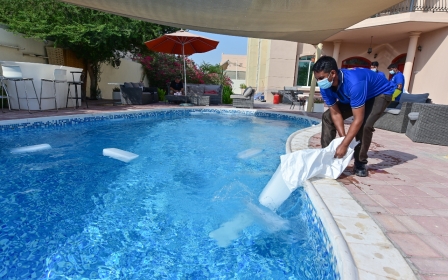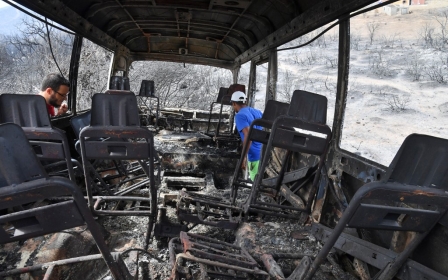Algeria wildfires: 34 killed as blazes ravage northern districts

Wildfires killed 34 people, including 10 soldiers, in Algeria's northern regions of Bejaia and Bouira on Monday, with authorities evacuating 1,500 from the disaster-struck areas.
The fires hit Algeria as the country struggles with a record-breaking, two-week heatwave that saw four countries in the Middle East and North Africa surpass 50C at the weekend.
The blaze broke out on 17 July in Saharidj in Bouria province and has since spread across several districts in the north: Tipaza, Bejaia, Mostaganem, Setif, Skikda, Boumerdes, Tizi Ouzou and Jijel.
On Wednesday, authorities closed the Oum Teboul border crossing with Tunisia after another fire broke out in the Maloula forest near the border town of Tarbaka.
According to the civil protection agency, some 7,500 firefighters have been deployed in the regions. “The fire does not pose any danger to the population,” the agency said.
New MEE newsletter: Jerusalem Dispatch
Sign up to get the latest insights and analysis on Israel-Palestine, alongside Turkey Unpacked and other MEE newsletters
A few days previously, the authorities raised the level of alert to maximum when five Algerian councils recorded some of the highest temperatures in the world, according to El Dorado Weather.
In recent summers, northern Algeria has been devastated by forest fires, a phenomenon that has escalated with the climate crisis.
In 2021, forest fires ravaged the region, killing around 90 people and destroying more than 100,000 hectares of woodland.
The latest blazes come during a summer that has seen temperatures soaring worldwide, with the highest recorded in the Middle East. In Oman, Iran, Kuwait and the United Arab Emirates temperatures soared to 50c and above, matching and, in some cases, breaking national records.
On Sunday, Sweihan, a small town around 80km east of Abu Dhabi, recorded a temperature of 51.77C, the highest ever seen in the UAE.
The extreme temperatures recorded in the Middle East and North Africa have been escalating year on year. According to a study published in Nature Sustainability, several countries in the Middle East will be exposed to “unprecedented heat”, with mean annual temperatures of 29C or higher.
Middle East Eye delivers independent and unrivalled coverage and analysis of the Middle East, North Africa and beyond. To learn more about republishing this content and the associated fees, please fill out this form. More about MEE can be found here.




